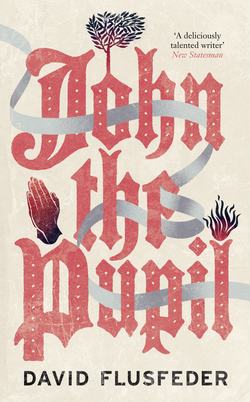Читать книгу John the Pupil - David Flusfeder, David Flusfeder - Страница 7
Note on the Text
ОглавлениеA few remarks should be made here about the history of this unique manuscript.
I quote from Augustus Jessopp’s lecture ‘Village Life Six Hundred Years Ago’, first delivered to a notoriously uninterested audience in the Public Reading Room of the village of Tittleshall in Norfolk, and later collected in his The Coming of the Friars and Other Historical Essays (1885):
In the autumn of 1878, while on a visit at Rougham Hall, Norfolk, the seat of Mr. Charles North, my kind host drew my attention to some large boxes of manuscripts, which he told me nobody knew anything about, but which I was at liberty to ransack to my heart’s content. I at once dived into one of the boxes, and then spent half the night in examining some of its treasures.
The smaller strips of parchment or vellum – for the most part conveyances of land, and having seals attached – have been roughly bound together in volumes, each containing about one hundred documents, and arranged with some regard to chronology, the undated ones being collected into a volume by themselves. I think it almost certain that the arranging of the early charters in their rude covers was carried out before 1500 A.D., and I have a suspicion that they were grouped together by Sir William Yelverton, ‘the cursed Norfolk Justice’ of the Paston Letters, who inherited the estate from his mother in the first half of the fifteenth century.
They had lain forgotten until they came under my notice. Of this large mass of documents I had copied or abstracted scarcely more than five hundred, and I had not yet got beyond the year 1355. The court rolls, bailiffs’ accounts, and early leases, I had hardly looked at when this lecture was delivered.
It was in this last collection, which the genial eye of the schoolmaster-essayist-cleric Jessopp failed to apprehend, where the fragmented chronicle of John the Pupil lay buried.
Not until another generation after Jessopp were the first attempts made to piece the chronicle together. It is a great shame that the task did not fall to someone more skilled than the amateur antiquarian Gerald Lovelace, whose expertise did not match his enthusiasm. He succeeded in pasting the fragments together in double columns in some kind of chronological order but, robust as parchment is, many of the pages suffered in the process. He presented the ‘finished’ volume, whose translation he did not attempt, to the benefactress Celia (Cornwell) Bechstein. It has had an unlucky subsequent history, and here is not the place to detail or dwell on its misfortunes and depredations, the estate disputes, the book thieves, the fire at Chatham; until recently it had been stored, in harsh conditions, in a warehouse room in Ealing.
The text before you is a translation from a mixture of languages – primarily Latin, but also some Middle English, Old French, Italian, and Occitan, as well as Hebrew and Greek. Efforts have been made to preserve the spirit and voice of the original, at the expense, inevitably, of some of the literal meaning.
I have operated under etymological constraints, using only words that would have been known to John or are English cognates to his Latin ones. I may not use the word ‘succeed’, for example, other than to denote a sequence, because that is a secular, originally sixteenth-century term, which presumes to credit a favourable outcome to an individual’s capacities rather than to the divine will. A donkey’s ears cannot ‘flap’; our companions may not ‘embark’ or ‘struggle’ or use ‘effort’. When trying to find unanachronistic correlatives for John’s vocabulary, I have aimed not for the striking word or phrase, but the most apt and, in most cases, recognisable.
Where there are sections lost from the original manuscript, their absence has been marked by ellipses and blank space.
Most of the fragments follow an obvious chronology (helped by their author’s habit of dating each entry by reference to the saint to whom the day is dedicated). One of the harder parts of the editorial task has been to decide upon the arrangement of some of the others. The mistakes that have been made here are the editor-translator’s own: I am not a historian or a philologist, just a worker in language, whose path to John’s manuscript has been an unlikely one that need not interrupt the reader’s attention.
The original has now found a hospitable home in the library of a private collector, who commissioned this translation and provided me with a transcription of the original in the interest of making this extraordinary story available to its widest possible audience, and to whom unutterable thanks are due but hard to bestow, as he wishes to preserve his anonymity.
